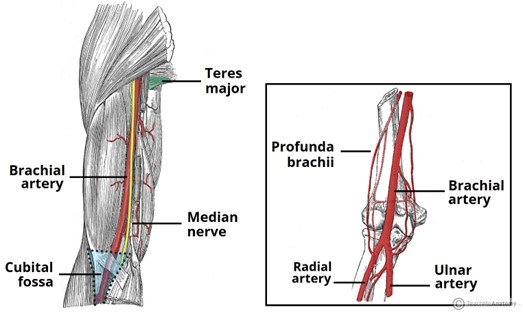A nurse is caring for a client who has dysphagia. Which of the following instructions should the nurse give to the client to decrease the risk of choking?
Tilt your head forward while you eat.
Obtain your vitamins in liquid form.
Cool foods down to room temperature before consuming.
Drink water with each bite of food.
The Correct Answer is A
Choice A reason: Tilt your head forward while you eat is a correct instruction for dysphagia. This position can help prevent choking by closing the airway and directing food and fluids to the back of the mouth and throat.
Choice B reason: Obtain your vitamins in liquid form is not a correct instruction for dysphagia. Liquid vitamins can be too thin and watery for people with dysphagia, as they can easily enter the airway and cause aspiration. Vitamins should be taken in pill or chewable form, or crushed and mixed with thickened liquids or pureed foods.
Choice C reason: Cool foods down to room temperature before consuming is not a correct instruction for dysphagia. Food temperature does not affect the risk of choking for people with dysphagia, as long as the food is not too hot or too cold. Food texture and consistency are more important factors for safe swallowing.
Choice D reason: Drink water with each bite of food is not a correct instruction for dysphagia. Water can also be too thin and watery for people with dysphagia, as it can also enter the airway and cause aspiration. Water should be thickened to a nectar-like, honey-like, or pudding-like consistency, depending on the individual's needs and preferences.
Nursing Test Bank
Naxlex Comprehensive Predictor Exams
Related Questions
Correct Answer is D
Explanation
Choice A reason: Creatinine 0.8 mg/dL is within the normal range (0.6-1.2), and it does not indicate fluid volume excess. Creatinine is a waste product of muscle metabolism that is filtered by the kidneys. High creatinine levels can indicate kidney damage or impaired renal function.
Choice B reason: Hgb 15 g/dL is within the normal range (13-17 for men, 12-16 for women), and it does not indicate fluid volume excess. Hgb stands for hemoglobin, which is a protein in red blood cells that carries oxygen to the tissues. Low hemoglobin levels can indicate anemia, bleeding, or hemolysis.
Choice C reason: BUN 18 mg/dL is within the normal range (7-20), and it does not indicate fluid volume excess. BUN stands for blood urea nitrogen, which is a waste product of protein metabolism that is filtered by the kidneys. High BUN levels can indicate dehydration, kidney damage, or high protein intake.
Choice D reason: Sodium 149 mEq/L is high and indicates fluid volume excess. Sodium is an electrolyte that helps maintain fluid balance, blood pressure, and nerve impulses. High sodium levels can cause fluid retention, edema, hypertension, and heart failure.
Correct Answer is C
Explanation
Choice A reason: Using an electronic device is not a reliable method for measuring blood pressure because it may give inaccurate readings due to movement, noise, or battery issues. An electronic device should be calibrated regularly and compared with a manual device.
Choice B reason: Inflating the cuff to 140/90 mmHg is not a correct procedure for measuring blood pressure because it may cause discomfort and false readings. The cuff should be inflated to about 20 to 30 mmHg above the expected systolic pressure or until the pulse disappears.
Choice C reason: Placing the cuff on the upper arm is a correct procedure for measuring blood pressure because it ensures that the cuff is at the same level as the heart and that the brachial artery is compressed. The cuff should be snug and fit around 80% of the arm circumference.
Choice D reason: Measuring blood pressure after exercise is not a good time for measuring blood pressure because it may reflect a temporary increase due to physical activity. Blood pressure should be measured after resting for at least 5 minutes in a quiet and comfortable environment.

Whether you are a student looking to ace your exams or a practicing nurse seeking to enhance your expertise , our nursing education contents will empower you with the confidence and competence to make a difference in the lives of patients and become a respected leader in the healthcare field.
Visit Naxlex, invest in your future and unlock endless possibilities with our unparalleled nursing education contents today
Report Wrong Answer on the Current Question
Do you disagree with the answer? If yes, what is your expected answer? Explain.
Kindly be descriptive with the issue you are facing.
